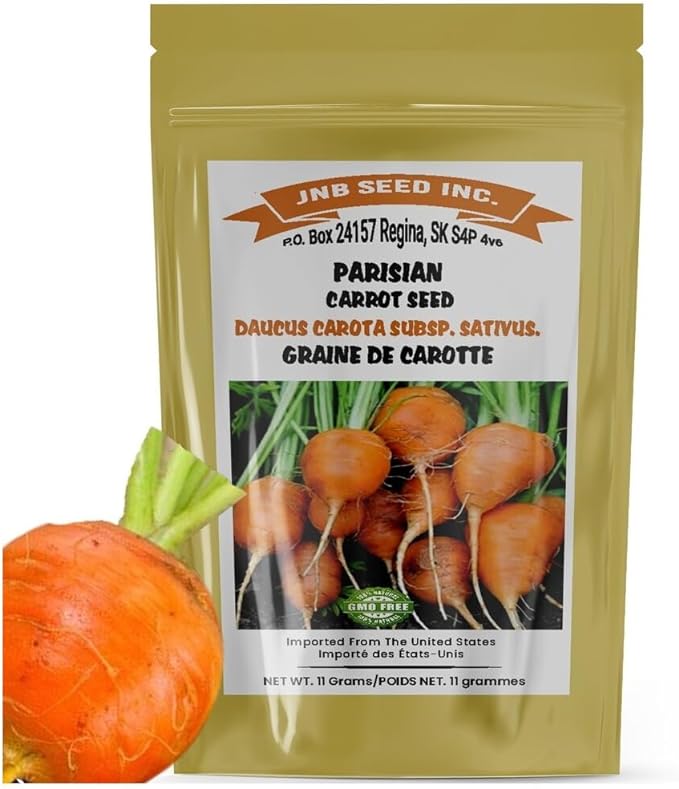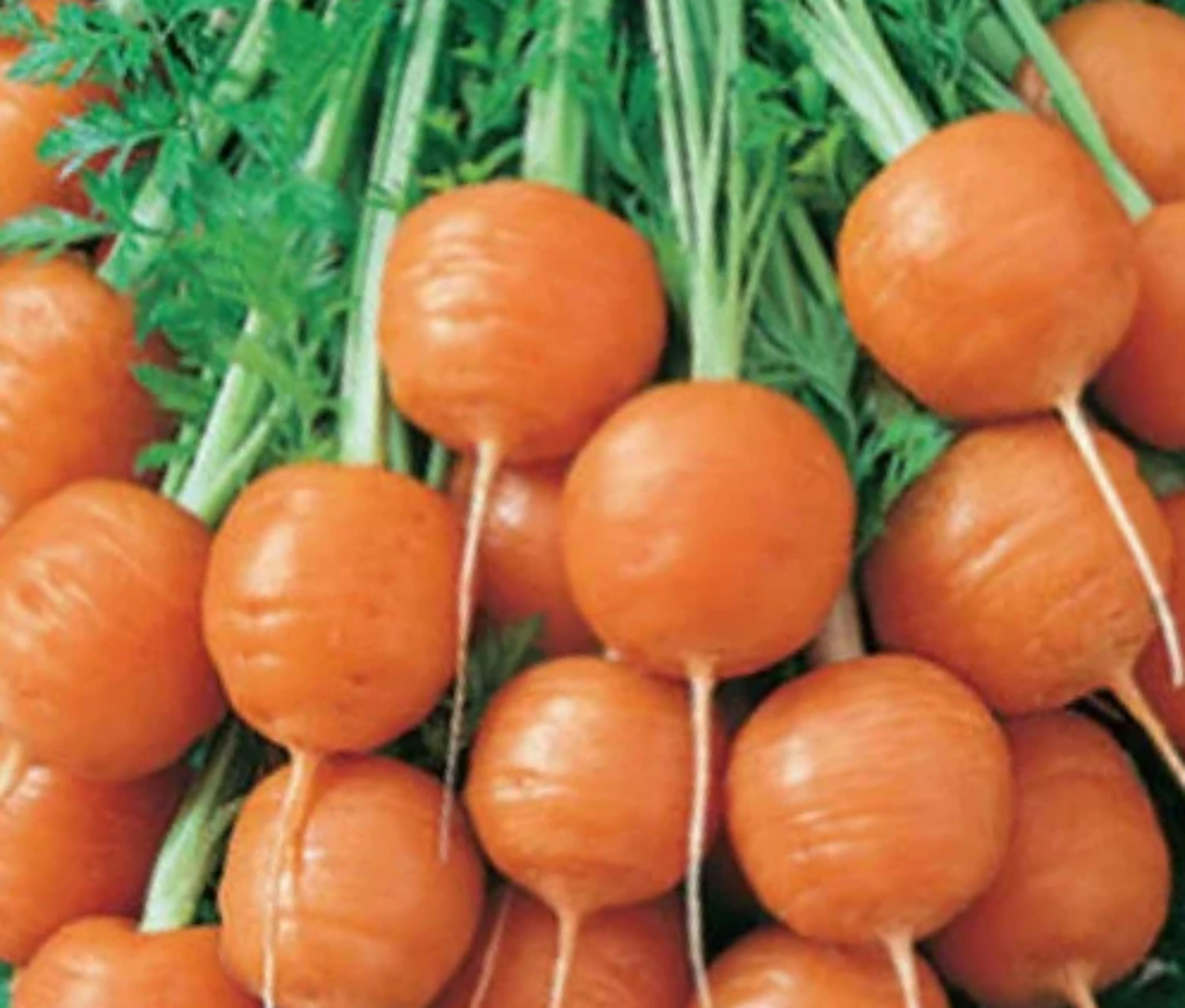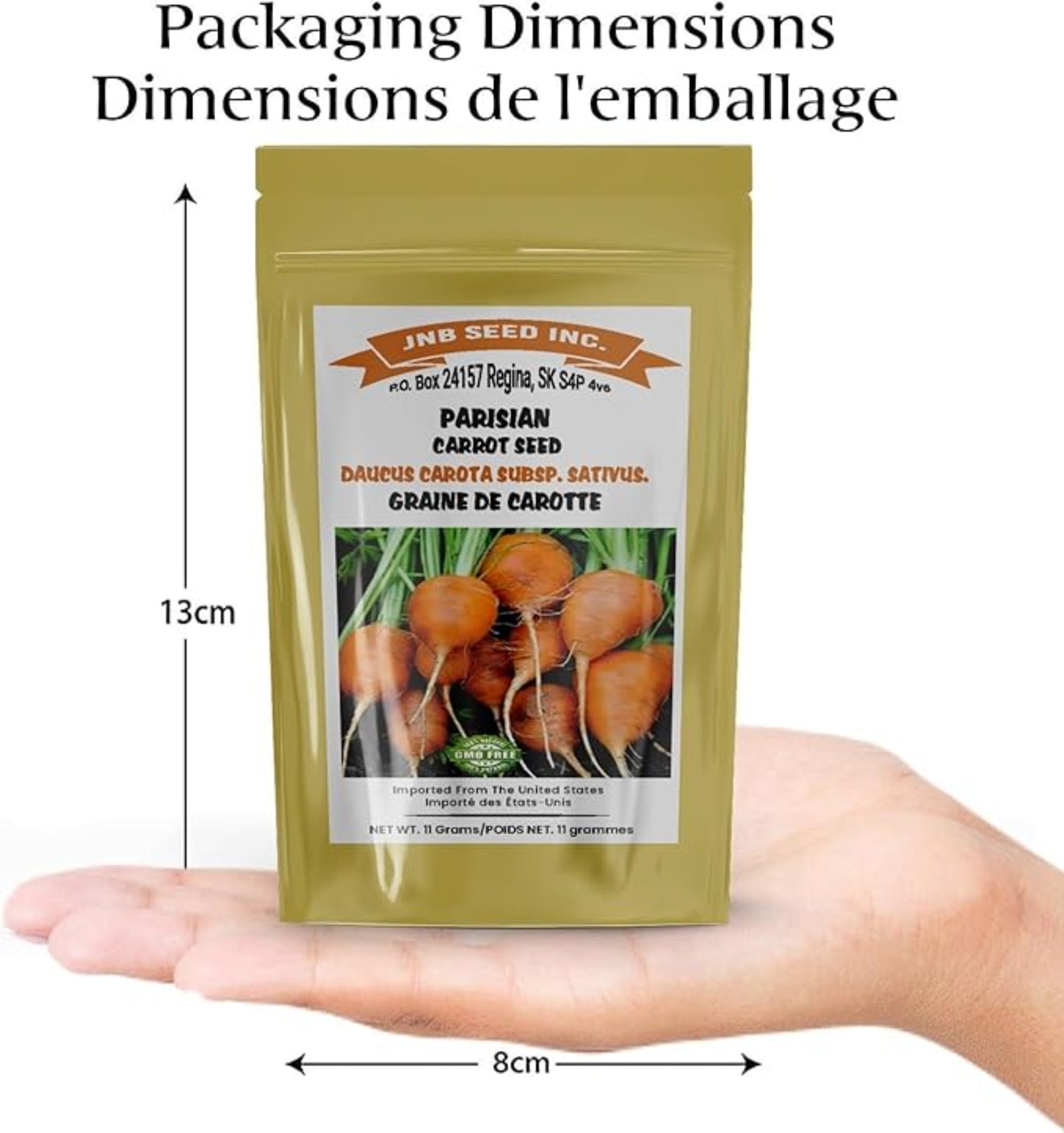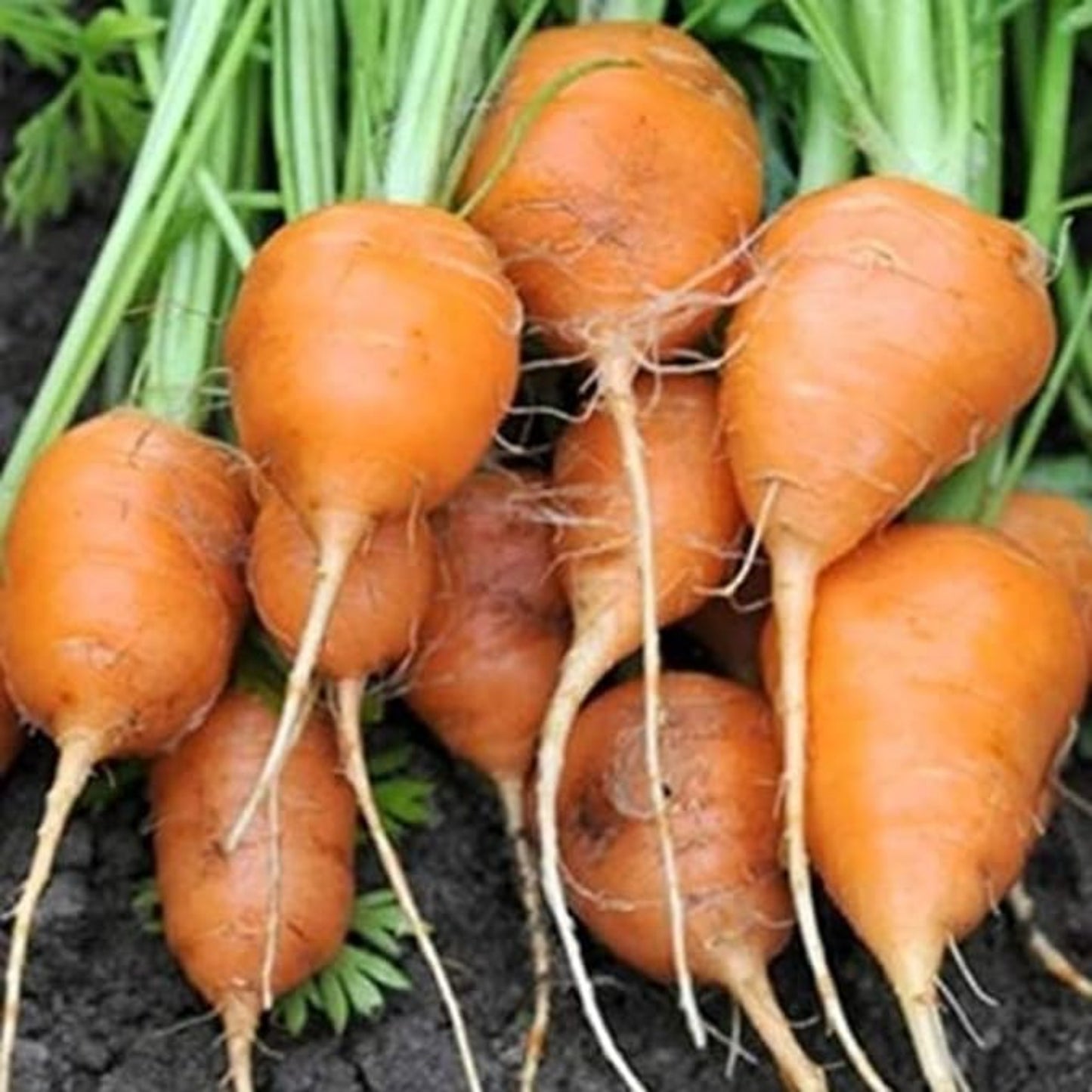JNB Seed
Parisian Carrot Seeds
Parisian Carrot Seeds
Couldn't load pickup availability
The Parisian carrot, a cherished nineteenth-century French heirloom, distinguishes itself with its petite, round shape reminiscent of a large radish. This early orange-red carrot variety thrives even in challenging clay or rocky soil conditions, where other carrots struggle to develop properly. Renowned for its legendary flavor, it remains a highly coveted delicacy in gourmet culinary circles.
These small, round carrots, akin to young turnips in size and shape, offer a delightful crunch and sweet carrot taste. Perfect for container gardens or areas with rocky or heavy soil, they stand out as the top choice for gardeners facing such challenges.
With a maturity period of 60 days, the Parisian carrot, also known as 'Paris Market' or 'Parisian Market', boasts small, globe-shaped to top-shaped bright orange roots, scarcely larger than typical globe radishes. Originally developed for container gardening and cultivation in heavy, rocky soils, they were specifically bred for "forcing" in frame or greenhouse conditions, catering to localized agricultural practices of yesteryears.
Although a beloved classic in European markets, the Parisian carrot is gradually gaining popularity in the United States, often still regarded as a novelty. Beyond their suitability for container gardening, these carrots excel in fresh consumption, canning, and are highly favored by discerning chefs in gourmet restaurants.
Each packet of this ancient French market carrot variety contains 1 gram, approximately equivalent to 500 seeds, ensuring an ample supply for both home gardeners and commercial growers alike.
Share
How To Grow
How To Grow
Start by preparing a well-draining soil mix and sow the Parisian carrot seeds thinly in rows or containers. Plant the seeds about 1 centimeter deep and keep the soil consistently moist until germination, which typically takes 10 to 14 days. Once the seedlings emerge, thin them to ensure proper spacing, allowing about 5 centimeters between plants. Provide adequate sunlight, water, and nutrients throughout the growing season, and protect the young plants from pests and diseases. Each packet of Parisian carrot seeds contains a sufficient quantity of seeds to start a productive carrot patch. Follow the instructions provided on the packet for optimal sowing and growing conditions. With proper care and attention, you can enjoy a bountiful harvest of delicious Parisian carrots in your garden.
Harvesting
Harvesting
To harvest Parisian carrot seeds, wait until the plants have fully matured, typically around 60 days after planting. Look for the carrot tops to turn yellow and the seed heads to become dry and brown. Then, carefully cut the seed heads from the plants and allow them to dry further indoors for a week or two. Once completely dry, shake the seed heads over a clean surface to release the seeds.
Seed Saving
Seed Saving
To save Parisian carrot seeds, ensure that the seeds are fully dry before storing them. Place the seeds in a clean, dry container and store them in a cool, dry place away from direct sunlight. Properly stored Parisian carrot seeds can remain viable for up to three years.
Extra Facts
Extra Facts
Planting Methods: Parisian Carrot seeds should be sown 0.5 cm deep in well-prepared soil.
Blooming Season: Parisian Carrots typically bloom in late spring to early summer.
Planting Season: Parisian Carrots are best planted in early spring when the soil temperature reaches around 10-15°C.
Latin Name/USDA Zones: The Latin name for Parisian Carrot is Daucus carota. USDA Zones: 3-11.
Sunlight Required/Height: Parisian Carrots require full sun (at least 6 hours of sunlight per day) and can grow up to 15-20 cm tall.
Shelf Life After Test Date: Parisian Carrot seeds have a shelf life of approximately 2-3 years after the test date if stored in a cool, dry place.
Seed Type: Parisian Carrot seeds are open-pollinated heirloom seeds.
Soil Type: Parisian Carrots prefer well-draining loam soil but can also tolerate clay or sandy soil with good organic content.










